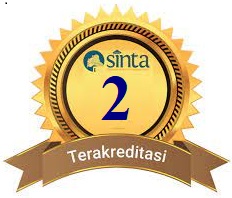Tangible Value Biodiversitas Herbal dan Meningkatkan Daya Saing Produk Herbal Indonesia dalam Menghadapi Masyarakat Ekonomi ASEAN 2015
Abstract
Herbs are environmentally friendly commodities that slogan 'back to nature'. Herbal is a reliable commodityIndonesia because herbal raw material comes from Indonesia's abundant biodiversity. However, the currentIndonesian herbal faced a number of challenges to be able to compete with the herbs that come from foreigncountries. The existence of the Free Trade Agreement can be seen by the opening of the market to the entry ofIndonesian herbal products imported from Cina, India, Malaysia, and others. Economically, Indonesia's tradebalance deficit with export figures of herbal products continues to decline. That is, the existence of free tradeagreements is adversely affected by the low competitiveness of herbal products against imported products thatcirculate in Indonesia. In the midst of adversity free trade, in 2015 has agreed a free trade agreement between theASEAN countries (EAC). Will EAC able to lift Indonesian herbal products from the domestic market?.
Downloads
References
Pearson S, Gotsch C, Bahri S. 2005. Aplikasi Policy Analysis Matrix pada Pertanian Indonesia. Yayasan Obor Indonesia, Jakarta (ID).
Putri EIK. 2005. Riset Pasar Bagi Produk Biofarmaka. Kerja sama Pusat Studi Biofarmaka dan Ditjen B2HP Departemen Pertanian RI. ISBN 979-98350-4-6.
Putri EIK, Widyastutik, Mulyati H. 2010. Formulasi Strategi Peningkatan Daya Saing UMKM Klaster Produk Herbal Dalam Rangka Menghadapi Free Trade Agreement Asean-China CAFTA (Studi Kasus UMKM Produk Herbal di DIY). Institut Pertanian Bogor. Bogor (ID). Unpublished.
United Nations Commodity Trade Statistic Database. 2010. Comtrade. http://comtrade.un.org/
United Nations Commodity Trade Statistic Database. 2013. Comtrade. http://comtrade.un.org/
Widyastutik, Putri EIK, Mulyati H. 2009. Pengembangan Model Pembiayaan UMKM Klaster dalam Rangka Peningkatan Daya Saing untuk Menghadapi Krisis Finansial Global (Studi Kasus: UMKM di Kota Bogor). Unpublished.
Widyastutik, Mulyati H, Putri EIK. 2010. Analisis Faktor-Faktor Yang Memengaruhi Pengem-bangan Klaster UMKM Alas Kaki di Kota Bogor yang Berdaya Saing. Jurnal Manajemen dan Agribisnis. 7(1): 16-25.
This journal is published under the terms of the Creative Commons Attribution-NonCommercial 4.0 International License. Authors who publish with this journal agree to the following terms: Authors retain copyright and grant the journal right of first publication with the work simultaneously licensed under a Creative Commons Attribution-NonCommercial 4.0 International License. Attribution — You must give appropriate credit, provide a link to the license, and indicate if changes were made. You may do so in any reasonable manner, but not in any way that suggests the licensor endorses you or your use. NonCommercial — You may not use the material for commercial purposes.



















